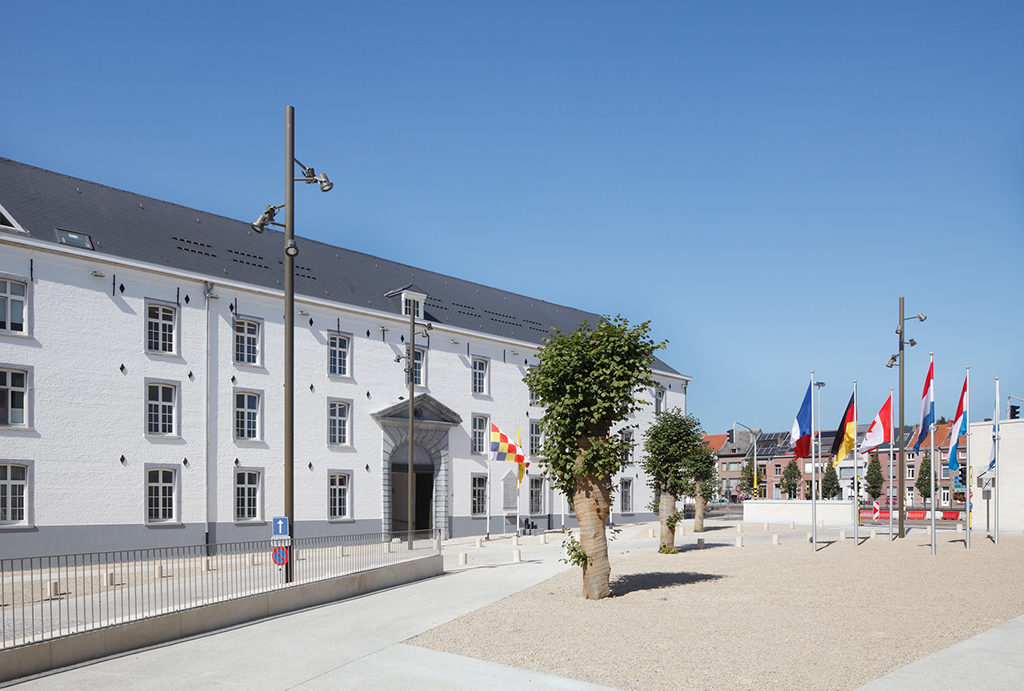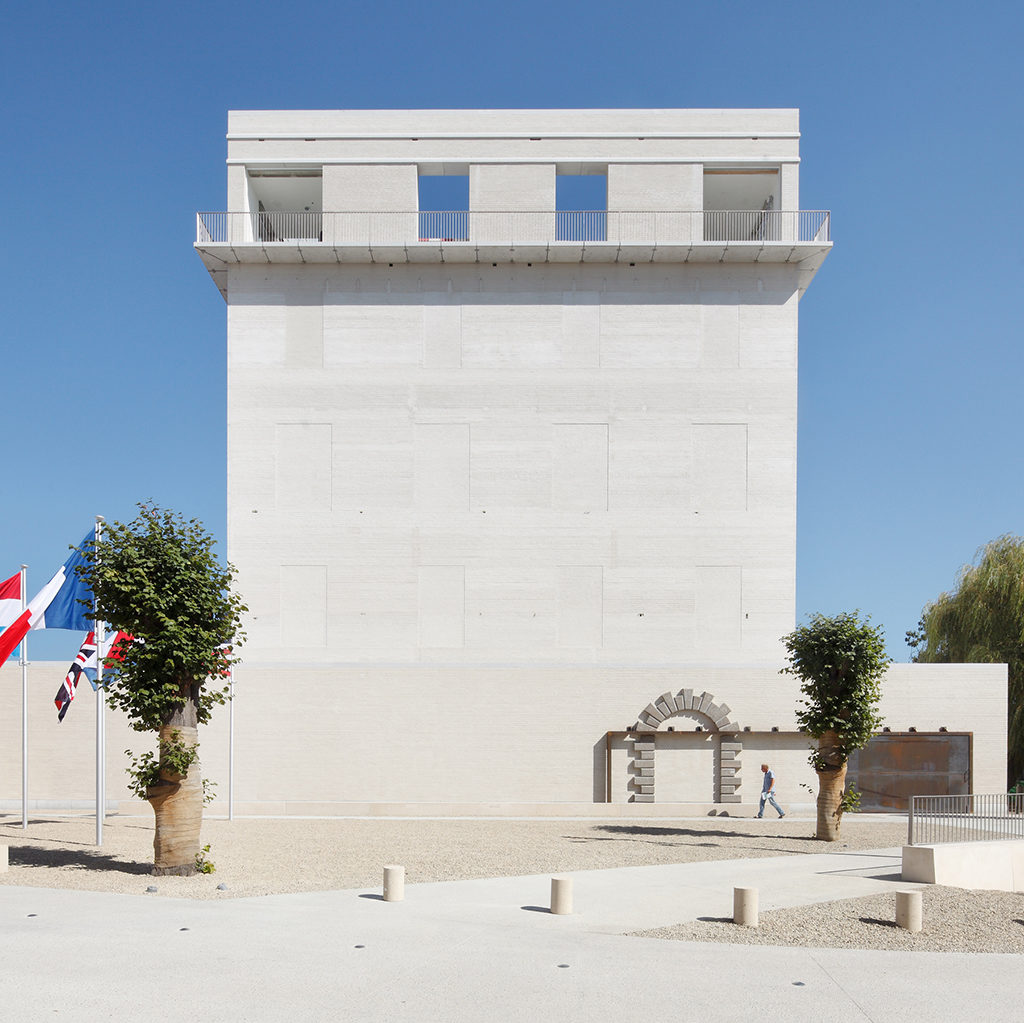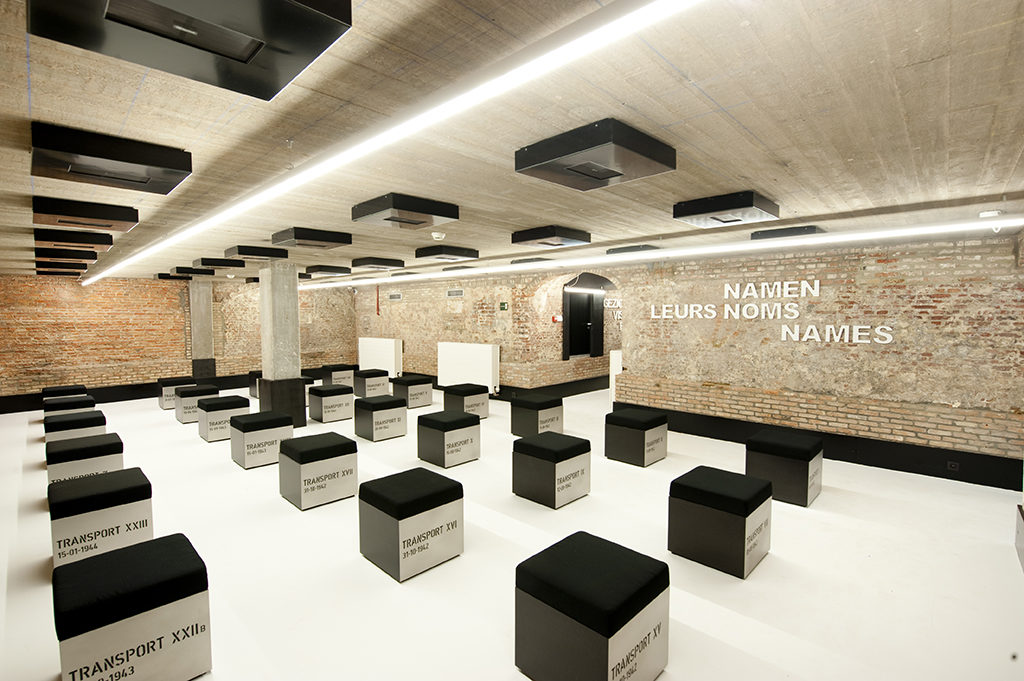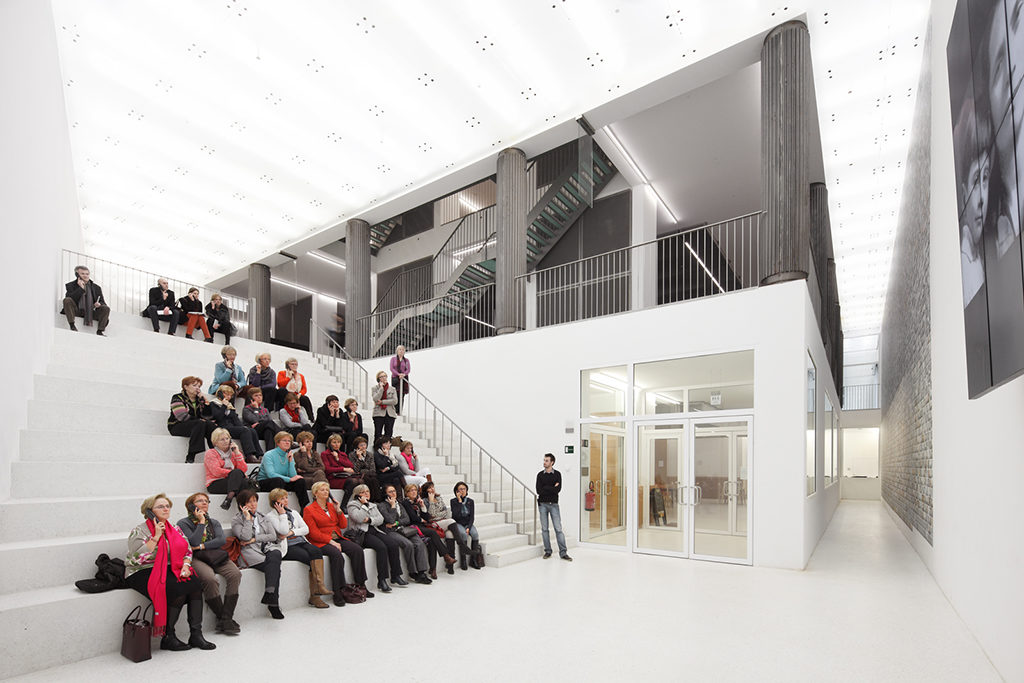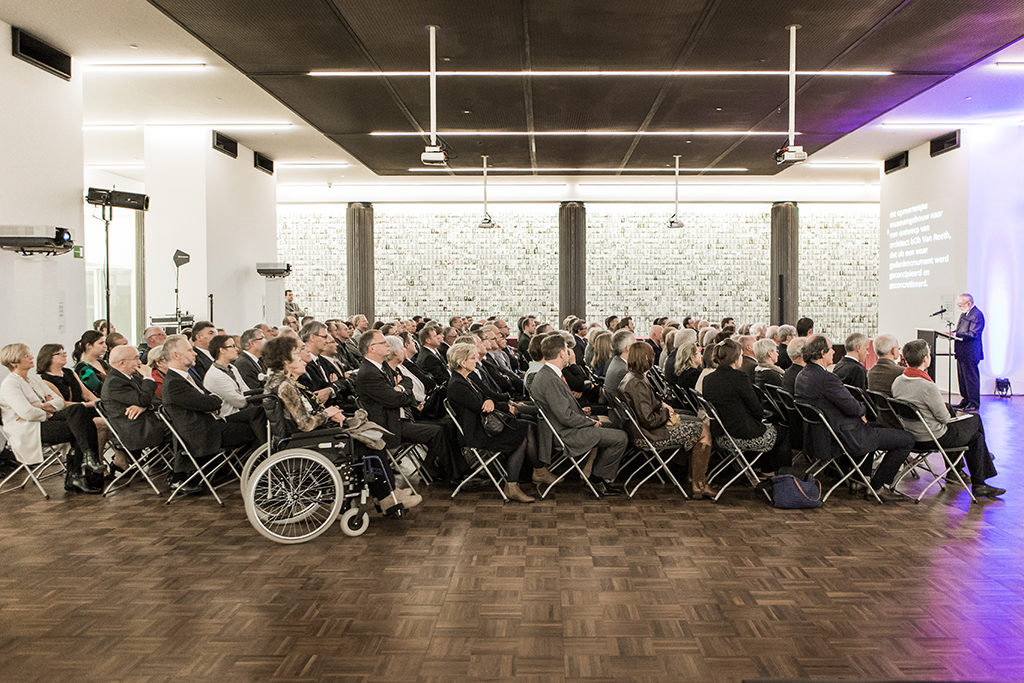- Museum
- Goswin de Stassartstraat 153, 2800 Mechelen, Belgique
- https://www.kazernedossin.eu/EN/
- +3215290660 info@kazernedossin.eu
In July 1942 Kazerne Dossin (Dossin Barrack), a former military base in Mechelen, was designated Sammellager, a transit camp for Jews, Roma and Sinti. Between July 1942 and September 1944, thousands of Jews and gypsies were transported from here to concentration camps in Germany. Nowadays, Kazerne Dossin is a Memorial, Museum and Documentation Centre on Holocaust and Human Rights.
The Kazerne Dossin was built in 1756 as a military barrack for 2,400 infantrymen. It kept its function for the military until July 1942, when the German occupier turned it into an assembly camp for Jews and gypsies. From here 25,484 Jews and 352 Roma and Sinti were deported to Auschwitz-Birkenau and other, smaller concentration camps. Less than 5 % of them survived.
In September 1944, when large parts of Belgium were liberated, the Kazerne Dossin became an internation camp for supposed collaborators, who waited in the Kazerne for their trial. Fifty years after the war the building became the site of the Jewish Museum of Deportation and Resistance. In 2011 the totality of the complex was renamed as ‘Memoriaal, Museum en Documentatiecentrum over Holocaust en Mensenrechten’.
The museum presents the history of the Holocaust, the German occupation, antisemitism and collaboration in Belgium. The Holocaust is presented from the perspectives of both the perpetrators and the victims. Spread over the floors of the museum the deportees look at the visitors from enormous photo walls. Through these photographs the victims regain an identity, which sharply contrasts with the photos of the goaded masses that persecuted them.
The museum not only tells the story of the Second World War, but chooses a broader view. Taking the Holocaust as a basis, the museum searches for timeless mechanisms of group pressure and collective violence that under certain conditions can result in mass murder and genocide. Therefore Kazerne Dossin is also a museum of mass violence. The Documentation Centre shows a collection of personal documents from 4,400 Jewish deportees: letters, identity cards and working licenses.


